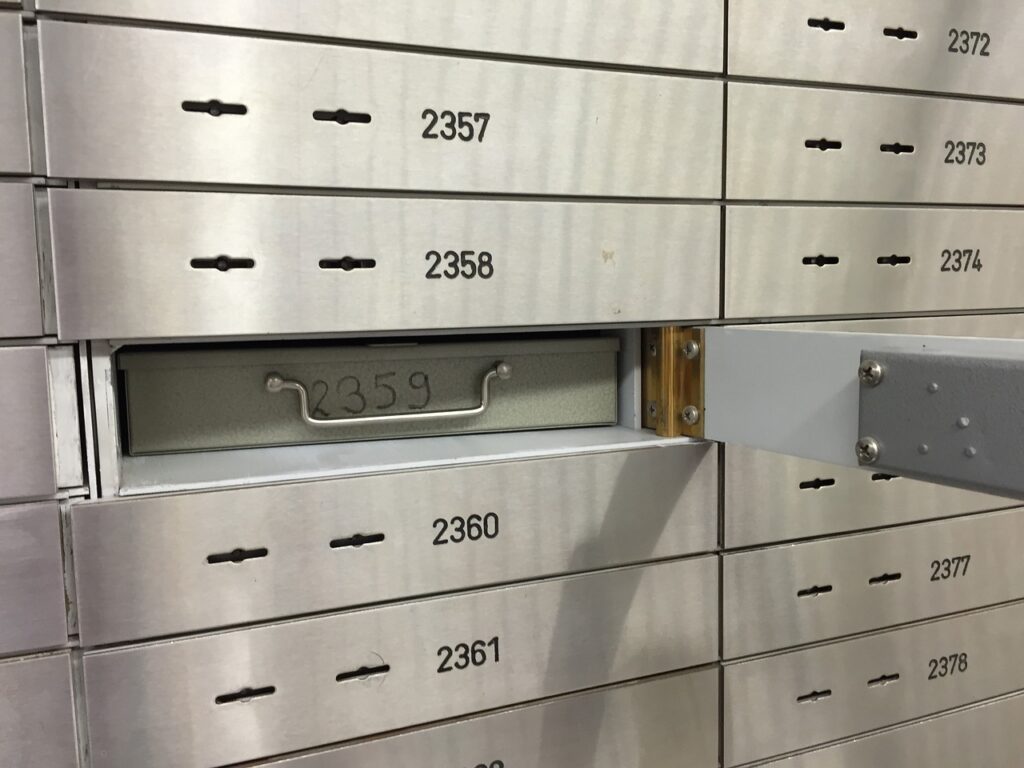Filing an Unclaimed Property Claim
Were you contacted by our company MuleOne? If so, we contacted you because your name and home address appeared in public records as the entitled owner, of unclaimed property.
We are registered with the state of California as an Investigator and Heir Finder. We help families, and individuals with the process of recovering unclaimed funds.
Our MuleOne team will handle your unclaimed funds’ case for you from start to finish for you. We’ll take care of all of your funds recovery expenses. We’ll receive our recovery service fee only after your funds have been disbursed to you directly from the government depository.
This article will cover the process for filing a California Unclaimed Property Claim.
California passed the Unclaimed Property law to protect its consumers. It prohibits businesses that hold unclaimed property from keeping the owner’s money and using it as an income. The State Controller’s Office monitors unclaimed property that businesses report and enables the State to return the property.
Read on to learn more about abandoned property claims and how the recovery process works.
Standard Investigator Agreement
The State Controller’s Office (SCO) has created a Standard Investigator Agreement for investigators to file claims on the behalf of claimants. Any contract entered into between an investigator and possible owner is null and void if the unclaimed property has not been reported to the SCO.
Investigator Fee
Section 1582 of the Code of Civil Procedure (CCP) establishes the fees that investigators may collect to cover the costs of their efforts to reconnect owners with unclaimed property.
It states that:
“No agreement to locate, deliver, recover, or assist in the recovery of property reported under Section 1530, entered into between the date a report is filed under subdivision (d) of Section 1530 and the date of publication of notice under Section 1531, is valid. Such an agreement made after publication of notices is valid if the fee or compensation agreed upon is not in excess of ten percent (10%) of the recoverable property and the agreement is in writing and signed by the owner after disclosure in the agreement of the nature and value of the property and the name and address of the person or entity in possession of the property. Nothing in this section shall be construed to prevent an owner from asserting, at any time, that any agreement to locate property is based upon an excessive or unjust consideration.
Notwithstanding any other provision of law, records of the State Controller’s Office pertaining to the unclaimed property are not available for public inspection or copying until after publication of notice of the property or, if publication of notice of the property is not required, until one year after delivery of the property to the State Controller’s Office.”
The Investigator’s fee of ten percent is common for recovering unclaimed funds in California.
Agreement Provisions While Filling an Unclaimed Property Claim

CCP Section 1582 must be followed in any investigator agreements submitted.
To guarantee compliance with the Act, the SCO must examine all investigator agreements. The SCO suggests using the Standard Investigator Agreement to speed up claim processing.
All of the main aspects of the Standard Investigator Agreement must be included in an original agreement prepared by an investigator or an attorney. Before filing a claim package, it’s a smart option to have a new investigator agreement approved by the SCO before submitting a claim.
An investigator is expected to make a complete disclosure of unclaimed property in the contract information under CCP Section 1582. The following information is included in the full disclosure:
- Name of the owner as stated by the holder
- Address of the owner as stated by the holder
- Stated property amount
- Name and address of the holder
- Name and address of the SCO, Unclaimed Property Division
When a claim package contains claims for numerous properties, each property must be fully disclosed.
Agreement Required For Each Claimant
Each owner/heir claiming the property must have a properly completed agreement and claim form. Each agreement must be approved by the SCO before the claim package may be issued. On a single agreement, the Standard Investigator Agreement allows for up to two claimant signatures.
It is not uncommon for an unclaimed property owner to have died and for his or her property to be claimed by one or more heirs. A separate agreement will be required if there are more than two claimants.
For example, if a property has five owners/heirs and two of them get a valid completed agreement, the investigator fees will be paid according to the agreement only for those two claimants.
Standardized/Non-Standardized Agreements
The SCO standardized agreement form is preferred for investigator agreements. Because of the extra staff time necessary to assess a non-standardized agreement for conformity with CCP Section 1582, a claim package filed with a non-standardized agreement may cause the assessment process to be delayed.
Contracts that do not follow the law will be rejected.
Power of Attorney

A power of attorney (POA) may not be accepted in lieu of the claimant’s signature on the claim form or an investigator agreement. In circumstances when a POA is required due to a medical condition that prohibits the claimant from signing the claim form, an exception may be considered. However, the POA must be accompanied by medical verification from a registered physician.
As per CCP Section 1540(a), the claim must be verified by the claimant.
In such cases where the claimant can not sign due to medical conditions, the claim is referred to the SCO legal office for verification. All claim packages signed by a POA that does not include medical verification signed by a registered physician will be automatically refused.
Claim Package
A claim package is a compilation of required documents that are submitted to the State Controller’s Office to verify entitlement to the recovery of unclaimed property.
- A fully signed Investigator Agreement, signed and dated by the investigator and each claimant, must be included in the claim package. This agreement does not need to be notarized.
- Each claimant’s claim package must contain a completed Claim for Abandoned Property. To ensure that investigator claims are immediately identifiable by the SCO upon receipt, the form should be reproduced on yellow paper. The use of the specified forms speeds up the claim procedure.
- If the entire worth of the cash properties is $1,000 or more, the claimant must sign and date the claim form, and their signature must be notarized. All securities and safe deposit-box claims must be notarized as well.
- It is necessary to provide a document that verifies the claimant’s present residence.
- A document proving the claimant’s Social Security number or tax identification number must be included in the claim package. In place of an SSN/Tax Identification Number, non-residents of the United States of America may submit a Temporary SSN, an IRS Form W-8 BEN, or an Individual Taxpayer Identification Number (ITIN).
- If a claim package does not have all of the documents required to validate the claim, it may be returned to the investigator with a note outlining the missing documents. The specific documents required depend on the type of property being claimed and the claimant’s relationship to the property’s stated owner.
- The property is removed from the SCO website after a claim package is received and while the claim is being processed.
To see and print the filing instructions and evidence required to verify your claim, click on one of the links below.
Choose the link above if you’re the stated owner listed in SCO records.
Choose the link above if you’re an heir, trustee, or a personal representative/executor/administrator of the property owner who is deceased listed in SCO records.
Choose the link above if you’re an officer of the business that is authorized to claim the property on behalf of the business listed in SCO records.
Choose the link above if you’re an authorized officer to claim the property on behalf of the government agency that is listed in SCO records.
Documentation by Property Type

The list of eligible documents for the type of property listed below can be provided with your claim.
Saving or Checking Accounts
- Account statement
- Bank passbook
- Correspondence from the bank that displays the account number
Proof of residence at the address shown on the property stated to the State Controller’s Office is needed if the account statement or passbook is not available.
Stocks, Dividends, Bonds, or Debentures
The State Controller’s Office is required by California’s Unclaimed Property Law (CCP Section 1563) to sell securities not less than 18 months, but not later than 20 months, after the final date for filing the report that is required by the CCP Section 1530. If a claimant’s shares have been sold, the law no longer allows for the payment of interest on any outstanding claims.
Note: The SCO is not permitted to purchase back the claimant’s shares or compensate for the difference in sale profits if the stock’s market value rose between the time it was sold and the time the claim was filed.
- Original stock certificate
- Original dividend check
- Original bond
- Original debenture
Account Statement
If the original certificate is not available, the SCO may accept additional documents such as evidence of occupancy at the registered address, proof of purchase, or a canceled dividend check in its place. When these documents are absent, the SCO may ask the claimant to post a lost instrument bond.
Life Insurance Accounts
- Insurance policy
- Insurance statement
Proof of residence or occupation at the address indicated on the property as reported to the SCO is necessary if the policy or statement is not available.
Escrow Accounts
The closing statement from the buyer and seller is essential. If the statement isn’t accessible, the claimant must provide proof of residency or occupancy at the address shown on the property’s SCO report.
If the buyer and seller are listed on the unclaimed property account, the claimant must prove their legal right to the escrow deposit and disputed escrow money. To establish entitlement, the claimant must present escrow or title company evidence detailing the distribution of escrow monies, or court documents demonstrating legitimate entitlement to the monies.
Negotiable Instruments, Certified Checks, Money Orders, Or Travelers Checks
To validate claims for negotiable instruments, further, documentation is required.
In most cases, the original instrument is required to be supplied.
Other documentation, such as a statement of loss under Commercial Code Section 3312, is necessary if the original instrument is not accessible.
Safe Deposit Box Contents

- Account statement
If the statement isn’t accessible, you’ll need to provide proof of residency or occupation at the address shown on the property account. If proof of residence is unavailable or the reporting agency failed to record an account owner’s last known address, documentation of affiliation with the reporting agency must be supplied.
There is no provision in the legislation for interest to be paid on any claims. If a claim is filed for the contents of a safe deposit box and approved. The State Controller’s Office delivers the property to the claimant by insured/registered mail after the claimant pays any liens on the safe deposit box.
The State Controller’s Office is notified if any lien amounts are payable to the bank at the moment of escheatment. The bank receives the money owed to it as a result of the lien.
Social Security Verification
The stated social security number of the property owner is needed and can be verified by providing the following:
- Social security card
- Income tax return
- W-2 form
- Pay voucher or pay stub
Non-English Documents
If the document used to verify the claim is not in English, it must be translated into English and submitted simultaneously with the non-English document.
Authentication of the translation is required. If the document is translated at an embassy, the translation must have the embassy’s seal as authentication. If the document is being translated in a college or university where the language is taught, the translation must be written or printed on the institution’s letterhead and signed by the translator.
Organizing, Referencing, and Indexing the Claim Package
To make the review of the claim package easier, documentation to prove complicated claims should be arranged, referenced, and indexed. A package containing unorganized, unreferenced, or unindexed documentation may be returned to the investigator for reassembling.
The claim processing procedure can be sped up by submitting properly constructed claim files.
Multiple Claims and Confidential Information
When more than one Investigator service files a claim for the same property, or when an individual files a claim and an Investigator acting on their behalf also files a claim, the SCO notifies all parties in writing.
The claimant must then advise the SCO and all parties (in writing) of the claim package that will be honored. If all of the information given is adequate to verify ownership, the SCO will process the honored claim.
If various claimants submit competing claim packages that contain contradicting facts, the claim packages may be sent to our Legal Office for review. Our legal team will figure out who, if anybody, is the legal owner of the property. Each party’s documentation is held in strict confidence.
Submitting a Claim Package

Any of the following techniques can be used to submit a claim package to the SCO:
U.S. Mail – Send to the following address:
State Controller’s Office
Unclaimed Property Division
Consumer Services Unit
P. O. Box 942850
Sacramento, CA 94250-5873
Expedite/Overnight Delivery – Deliver to the street address given below.
Delivery in Person – Delivered to the following address:
State Controller’s Office
Unclaimed Property Division
10600 White Rock Road, Suite 141
Rancho Cordova, CA 95670
Claim Status
The SCO must review a claim package within 180 days of receiving all substantiating material. However, the SCO final approval can easily exceed 300 days. The documents in the claim package are examined for conformity with the Unclaimed Property Law and Regulations, and the documentation given must prove the claim in order for it to be paid.
During the claim procedure, each claim package is assigned one of the following statuses:
Received
The package containing the claim has been received.
Approved
The claim package was approved, and payment is being processed.
Paid
The claim was settled.
Dropped (Closed)
One or more of the following areas in the claim package is deficient:
- Claim form – The claim form is either missing information or isn’t signed and notarized.
- Investigator Agreement – The agreement is either incomplete or in violation of CCP Section 1582.
- Documentation – The documents provided are insufficient to establish the claimant’s right to the property.
Claims that have been dropped or closed are returned to the Investigator. By providing a revised standard Investigator agreement, a yellow claim form, and any paperwork necessary to substantiate the claim request. An Investigator or Claimant can reopen a dropped/closed claim.
Denied
The SCO sends a written notice to the Investigator or Claimant if the material suggests that:
- The individual claiming ownership of the property is not the rightful owner or heir;
- A claim has already been filed against this property. This might be a claim that the Claimant submitted twice or one that was filed by someone else; or,
- The property had already been disbursed.
- If the Investigator or Claimant fails to submit materials ordered by the SCO, the Investigator or Claimant is informed.
- If a claim is refused, it can be appealed at the SCO Legal Office by sending a letter for an informal appeal within 30 days after the rejection letter’s date. The Legal Office will evaluate the matter after receiving the informal appeal letter and may seek further evidence or arrange a hearing. The SCO Legal Office will notify the Claimant in writing whether they have decided to sustain the refusal or grant the claim. The Claimant might also file a higher court case to substantiate his or her claim in each court in any city or county where the Attorney General’s office is located. This action must be taken within 90 days after the date of the denial letter, not the legal office’s appeal decision letter.
Payment of Claims

The methods for paying investigator claims are outlined below. Exceptions may be considered in exceptional situations, but only after the claimant submits a formal request.
- The payments are matched to the claimant’s Social Security number or tax identification number.
- When the claimant/heir lives in another country, additional payment processes may be considered.
- Prior to submitting the claim, the claimant and the investigator must agree on fees, which in California cannot exceed ten percent (10%) of the claim’s worth.
How the SCO settles the claims made by investigators and heir finding firms:
- The SCO shall mail two warrants for each claim if the wording in the Investigator Agreement clearly distributes a part of the amount to the investigator/heir finder.
- A warrant for the claimant will be mailed directly to the claimant and a second warrant for the investigator/heir finder’s agreed-upon fee will be mailed directly to the investigator/heir finder. The following is an example of agreement language that would allow for the mailing of two warrants: “Claimant assigns to the Investigator a percentage of 10% of the net assets which the Claimant in fact recovers.”
- If the investigator/heir finder is not assigned a share of the payment in the Investigator Agreement, a warrant for the complete amount made payable to the claimant will be issued straight to the claimant at the postal address specified on the claim form.
When the claim is approved, the claimant will receive a letter informing them that, they will be receiving payment directly from the SCO. And they will not be relieved of any contractual obligations they may have with the investigator/heir finder with whom they signed a contract. The SCO will also send a copy of this letter to the investigator/heir finder.
- Payments for unsold securities divided between the investigator and the claimant will only be made in full share increments. The owner’s shares will be rounded up if the share split results in a fraction. If the investigator/heir finders are entitled to an additional fraction of a share under their contract, it is the obligation of the investigator/heir finder to collect this sum directly from the owner. The SCO will send the claimant a letter alerting them that the rounding up of fractional shares in their favor does not free them of any extra-contractual obligations they may have with the investigator/heir-finding firm.
- A safe deposit box’s contents will be shipped directly to the claimant. The contents of the safe deposit box can only be given to one claimant
Interagency Intercept Program
The Franchise Tax Board’s Interagency Offset Program began on September 2, 2009 to offset all-cash claims and claims paid with proceeds of liquidated stock. If a claimant owes a debt to a state agency, municipality, or county in California, their payment will be intercepted and reduced by the amount owed.
Any outstanding claim payment balance will be remitted to the claimant. The FTB will issue a notice letter to the claimant if the claim is offset; the investigator will not be contacted. This procedure will not influence the investigator’s payment if the Investigator Agreement clearly assigns a share of the money to the investigator/heir finder. The full payment will be subject to the offset if the Investigator Agreement does not specifically designate a proportion to the investigator.
As a claimant, if you have any questions about the Interagency Intercept Program, please direct them to the FTB agency specified in their letter. The SCO is only given basic information about the offset and is unaware of it until it occurs.
Report of Interest Income
The Unclaimed Property Law no longer allows for interest to be paid on claims as of August 2003. The State Controller’s Office is obligated to send a claimant a 1099 statement detailing the amount of interest paid to an owner of unclaimed property for claims paid or approved prior to July 21, 2003.


Comments are closed